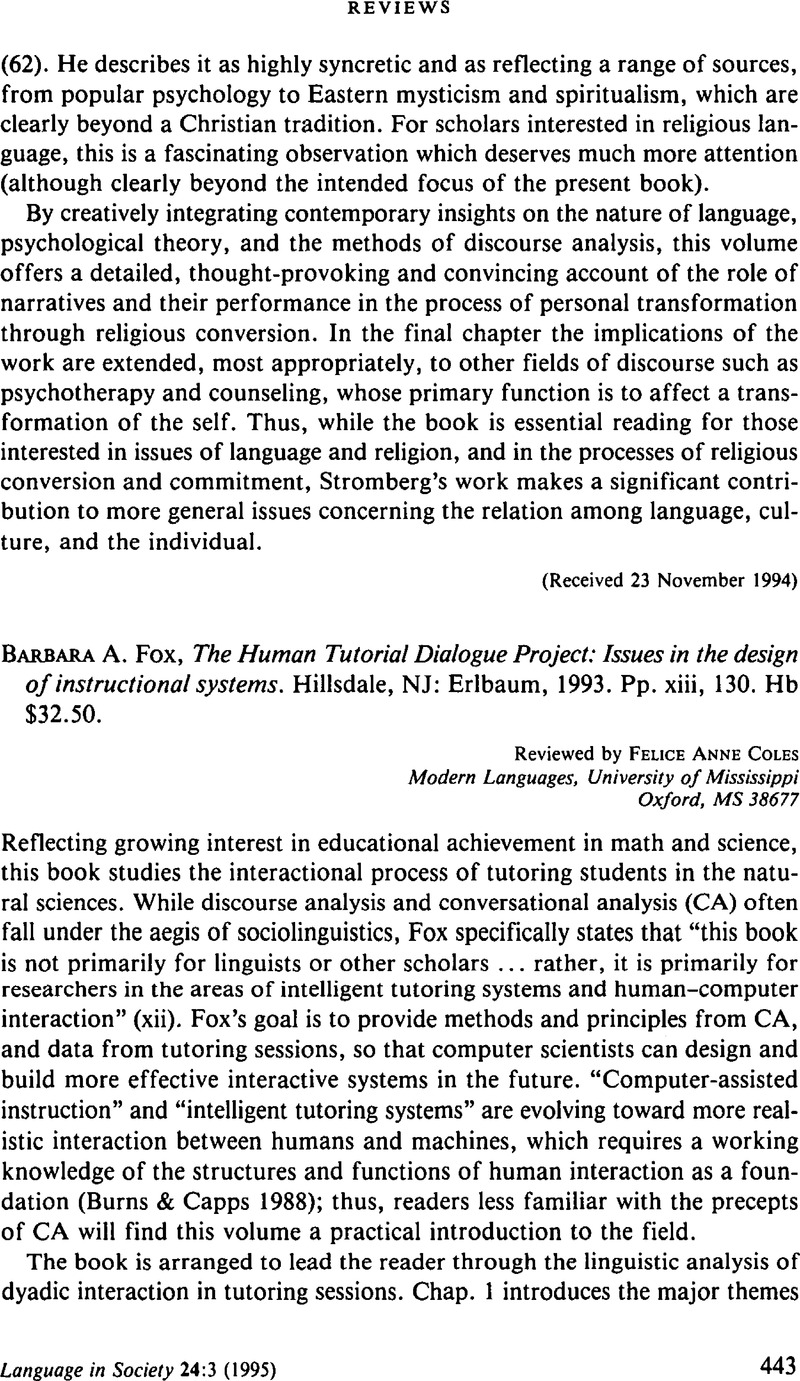Schegloff, Emanuel A. (
1982). Discourse as an interactional achievement: Some uses of “uh huh” and other things that come between sentences. In
Tannen, Deborah (ed.),
Analyzing discourse: Text and talk (GURT 1981),
71–
93.
Washington, DC:
Georgetown University Press.
Google Scholar 